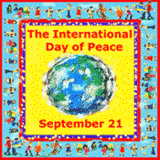
AP
FILE: U.N. General Assembly President Miguel d’Escoto
Brockmann accused the U.S. of committing inhuman
“atrocities” in a fiery speech before the U.N. Human
Rights Council
The Obama Administration joined the Human Rights Council to take up observer status on March 4, 2009, “which the Bush administration had boycotted because it was unable to crack down on despots and human rights abuses.”
That very day, H.E. Miguel D’Escoto Brockmann, President of the United Nations General Assembly gave an impassioned speech before the Human Rights Council, in Geneva, wherein he “accused the United States of committing inhuman ‘atrocities’ in Iraq and Afghanistan.”
(quotes posted here
From the Speech (PDF)
Mr. President, Martin Ihoeghian Uhomoibhi,
Excellencies,
Dear Friends,
Sisters and Brothers All,
1. I am very pleased to be able to join you here today as the first General Assembly President to formally address the Human Rights Council since its inception three years ago. This is especially appropriate because the Council, as you all know, was established by the General Assembly following the World Summit of 2005 to give higher visibility and importance to human rights alongside with peace, security and development.
2. At that Summit, world leaders also reaffirmed their commitment to the principles of universal human rights that the United Nations has painstakingly created over the past 60 years. These are commitments that we all must monitor closely. For, as we know, most gross violations of human rights are committed by our very own Member States. This vigilance must be particularly strong within the Human Rights Council itself if we are to maintain its current, reinvigorated momentum and strengthen the protection of our most vulnerable citizens.
3. As a new body, the world is watching the Council as it undergoes a paradigm shift from the culture of confrontation and mistrust that pervaded the Commission in its final years. We are confident that the Council is now achieving a new culture inspired by strong leadership and guided by principles of universality, impartiality, objectivity and non-selectivity, constructive international dialogue and cooperation. These principles will enhance the promotion and protection of all human rights.
. . . . .




 On December 10, 1948, five days prior to my birth:
On December 10, 1948, five days prior to my birth: